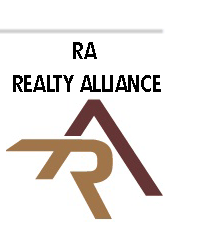|
Glossary of Real Estate terms - T click on the letter
Tenancy in Common The form of ownership in which the Registered Owners of interests in the property declare that there shall be NO automatic right of survivorship. If one dies, his or her share is distributed in accordance with their Will or the Estate Administration Act, if intestate. The property forms part of the deceased's estate and passes to the Personal Representative of the Deceased upon filing a Probate Order with the Land Title Office. Time is of the essence A clause, which if included in a contract, makes failure to perform by a specified date a material breach or violation of the contract. Title Properly called a "Certificate of Indefeasible Title". This is the proof of a person's right to or ownership of a property. The original "Certificate of Title" cannot be removed from the Land Title Office and is in fact only an electronic record. A Duplicate of the "Certificate of Indefeasible Title" may be requested if there are no financial charges registered against the property. This Duplicate Title must be returned to the Land Title Office before the Owner can deal with his property. As such, the "Title" may be hypothecated or used as security for a loan, since the lender knows that the owner cannot dispose of the property without returning the Duplicate Title to the Land Title Office. Title Insurance Insurance that protects the lender (lender's policy) or the buyer (owner's policy) against loss arising from disputes over ownership of a property. Title Search A check of the title records to ensure that the seller is the legal owner of the property and that there are no liens or other claims outstanding. Transfer of Ownership The written instrument, signed by the "Transferor" (seller), and delivered to the "Transferee" (buyer), by which one person conveys a property to another (ownership of the property changes hands). Triple Net Lease A commercial real estate lease in which the tenant regularly pays not only for the space but for a portion of the landlord’s operating costs as well. When all three of the usual costs--taxes, maintenance and insurance--are passed on, the arrangement is known as a "triple net lease." Because these costs are variable and almost never decrease, a net lease favors the landlord. Accordingly, it may be possible for a tenant to bargain for a net lease with caps or ceilings, which limits the amount of rent the tenant must pay. For example, a net lease with caps may specify that an increase in taxes beyond a certain point (or any new taxes) will be paid by the landlord. The same kind of protection can be designed to cover increased insurance premiums and maintenance expenses.
|
Stan Shawn REALTOR® For Vancouver |


